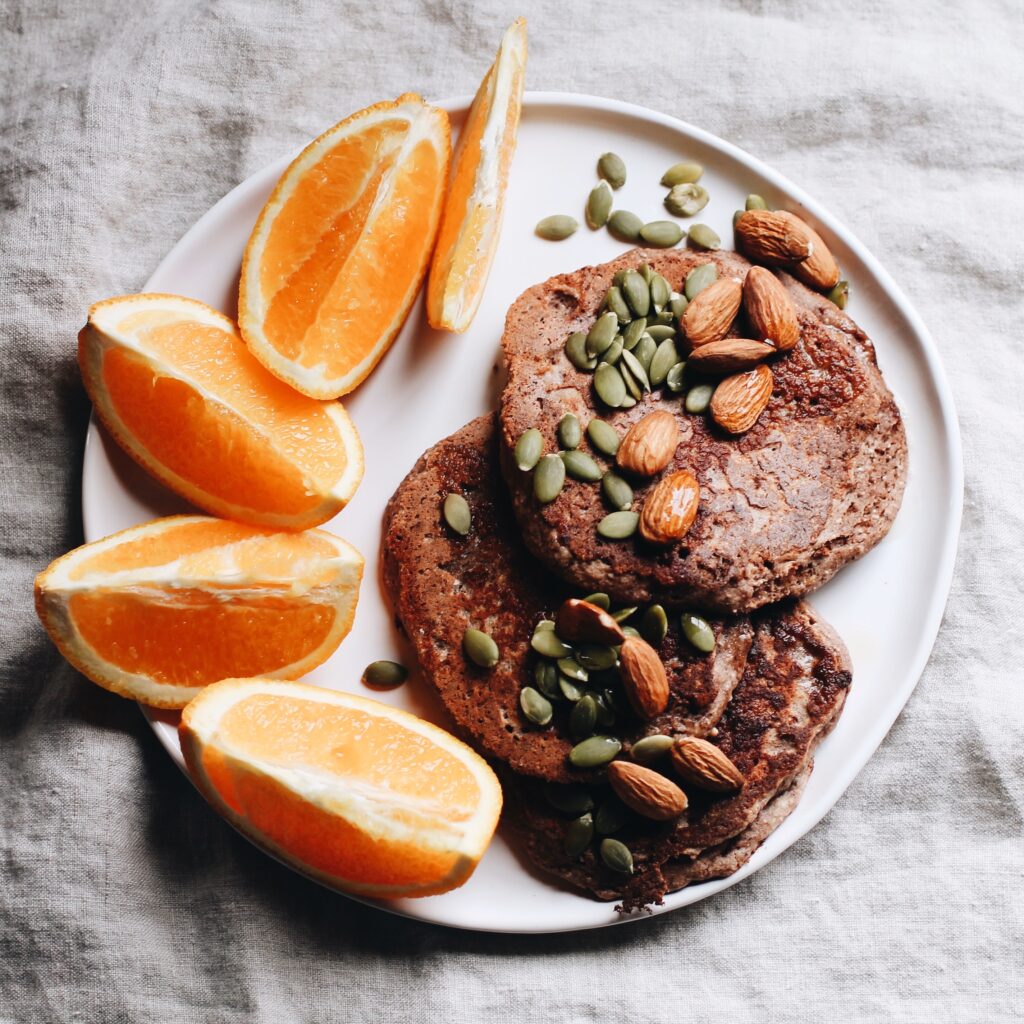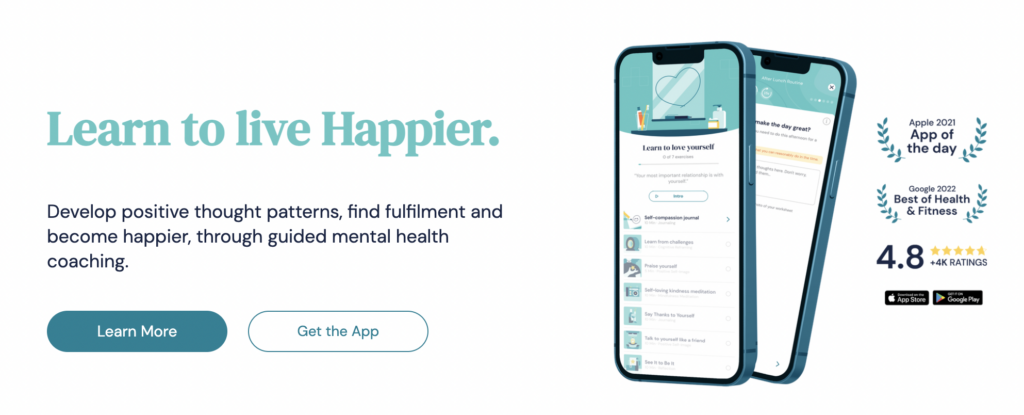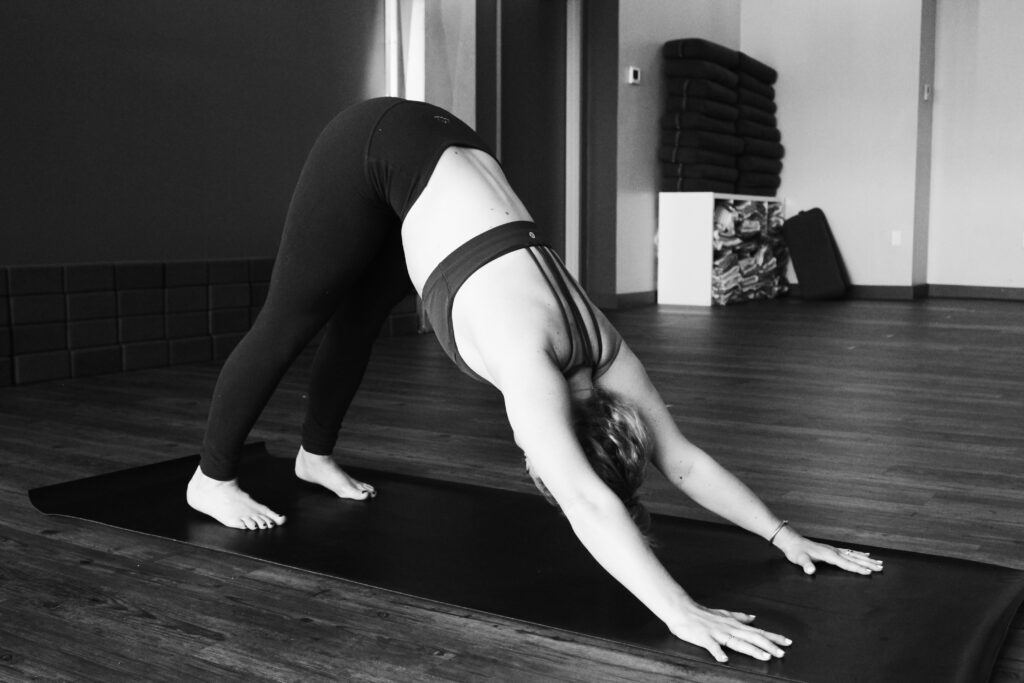Did you know that April is Stress Awareness Month? If you experience stress, anxiety, insomnia, chronic pain, or poor concentration, you’re not alone. In fact, it’s estimated that Americans are more stressed, today, than they were in the 1990s. This isn’t surprising. Experts chalk this up to changes in technology (hello, social media), hustle culture, economic hardships, and more. Learning to cope with daily stressors is key for living a healthy, positive life. After all, stress can impact many aspects of the body—from chronic inflammation to mismanaged blood sugar. Luckily, there are many simple, free ways to manage stress. In honor of stress awareness month, we’re diving into helpful tools for stress management.

What causes stress?
A lot. And unfortunately, we’re inundated by constant stressors in our modern day lives. Possible stressors include a lack of exercise, minimal sleep, feeling tremendous pressure (professionally, financially, etc.), facing significant changes in your life, being worried about something, having little control over a situation, overwhelming responsibilities, parenthood, experiencing discrimination or abuse, and more. Nutritionally-speaking, eating foods that are inflammatory can also cause stress.
How can I avoid Stress?
That’s nearly impossible—however!—there are a variety of ways to manage your stress. Rather than let your stress get the most of you, let it empower you to make non-negotiable changes. After all, your stress will continue to cause burden until you choose to do something different. And while change can be stressful in itself, the result could be life-changing.
Set boundaries
If you’re a people-pleaser, like me, begin by setting healthy boundaries. You’ll begin to avoid certain people, tasks, and experiences that currently cause stress. In turn, you’ll make space for more of what makes you feel grounded, inspired, and happy. Lastly, if you think your diet is causing stress, consider swapping some of your go-to packaged foods with whole, minimally processed alternatives. You’ll automatically lower stress in your body. These are my favorite swaps!

Best Stress Management tips
Depending on the severity of your stress, consider professional counseling. If that’s not feasible, use Mindshine (my go-to app!) for stress management tools, coaching, and resources. Ultimately, taking a holistic, well-rounded approach is most beneficial. For example, engaging in self-relaxation, breathing exercises, and meditation. All of these are possible in Mindshine. Beyond supporting your mental health, consider your physical well-being. Opt for yoga, waling, swimming, dancing, or lifting weights. These help calm the mind and the body. Time in nature and quiet music are known to reduce stress as well.

consider acupuncture for stress relief
Along with professional counseling, acupuncture supports stress relief. If you have health insurance, see if you can find a local acupuncturist within network. Acupuncture points help with energy flow, thus alleviating stress and anxiety. According to Chinese medicine, energy flows through our body through a “highway system,” or meridian pathways. However, stress acts like a traffic jam, blocking the free flow of energy throughout the body. In a highway system, when there is a roadblock, it generally affects other areas. This is true for stress as well, which may affect many other parts of the body—like digestion, blood pressure, pain and the ability to sleep. Through acupuncture treatment, these energy blockages can be addressed.
move your body to reduce stress
No surprise here. Taking a dynamic, well-rounded approach to movement is remarkably beneficial for your stress levels, heart health, muscle composition, joint stability, flexibility, and more. However you choose to move your body, remember that consistency is key. Getting in some type of movement, every day, can have profound impacts on your mental and physical health. Ideally, get in your movement in outside! Sunlight is key for reducing stress, improving sleep, and managing blood sugar.

start a meditation practice
When it comes to reducing stress, look no further than meditation. Tapping into your emotions—by way of meditation—can help you figure out what triggers your stress. Given that it’s stress awareness month, make commitment to yourself to begin a daily meditation practice. Meditation is a cost-effective practice that everyone can do. Even with minimal time and patience, meditation can chip away at your daily stressors. If you’re new to meditation, there are several meditation apps (Mindshine, Headspace, Breethe, etc.), websites, and Spotify meditations that provide free or low-cost guided instruction.

Use mindfulness to lower your stress
Becoming more mindful of your stressors will look a bit different for everyone. However, the power of your thoughts—and the way you consciously choose to live your life—can make a significant impact on your stress levels. Taking a moment to tune in, be present, and be thoughtful of where you exert your energy is how mindfulness becomes a daily practice.
Let go of expectations. It’s time to let go of the expectations you’ve subconsciously put on yourself. Often, they contribute to unwanted stress. Let go of expectations around what your body should look like, having the perfect diet, etc. Aim for having mindful intentions and priorities, rather than expectations.
Don’t lose sight of what actually matters. Yes, it’s entertaining and inspiring to scroll on social media, but don’t let that deter from what actually matters: life beyond your phone. In fact, studies show that too much time on social media causes unnecessary stress. At the end of the day, connection with loved ones is most important. What matters is that you realize you’re a part of something much larger than yourself.
Eat to nourish your cells
We all know nutrition is essential. After all, food has the power to change our biology. It also has the ability to support our mental health. And thus, our stress. For thousands of years, Eastern medicine practitioners have prescribed dietary changes to help ease mental ailments. Traditional Chinese medicine praises food as medicine. Thankfully, Western science is catching on. Solid evidence proves that what we eat is directly correlated to our wellbeing. Including, stress levels. Want the full list of healthy foods to boost your mood and lower stress? Click here.

Images courtesy of Unsplash.
Thank you for supporting Wellness with Edie! This article is for informational purposes only. It is not, nor is it intended to be, a substitute for professional medical advice, diagnosis, or treatment and we recommend that you always consult with your healthcare provider.



Leave a Reply